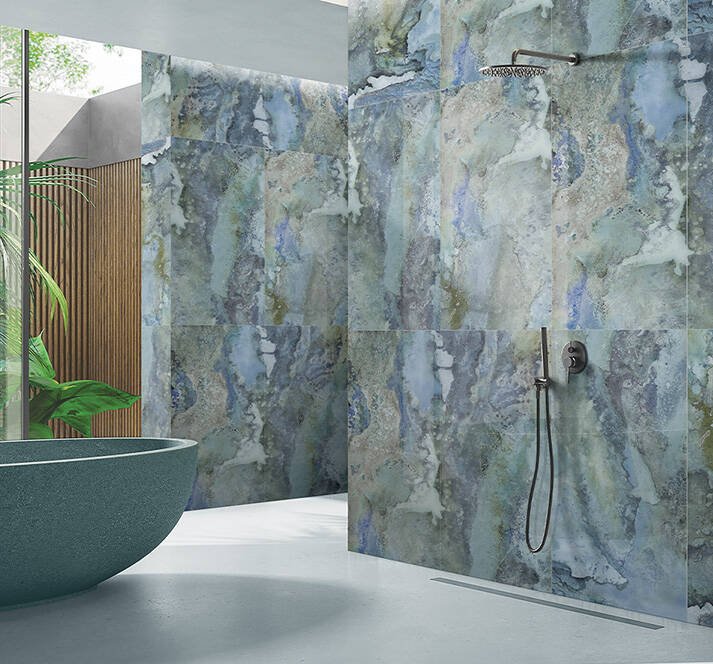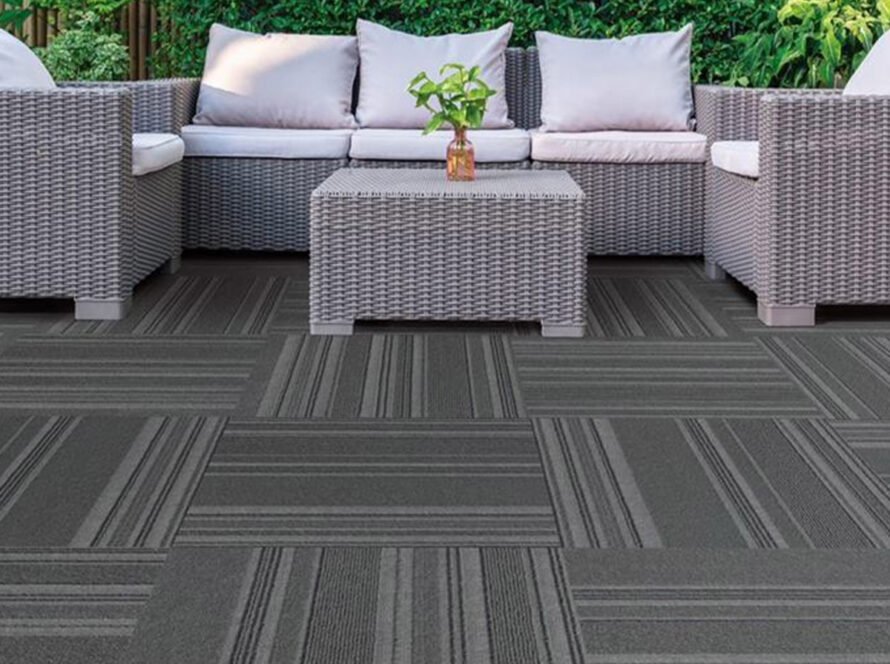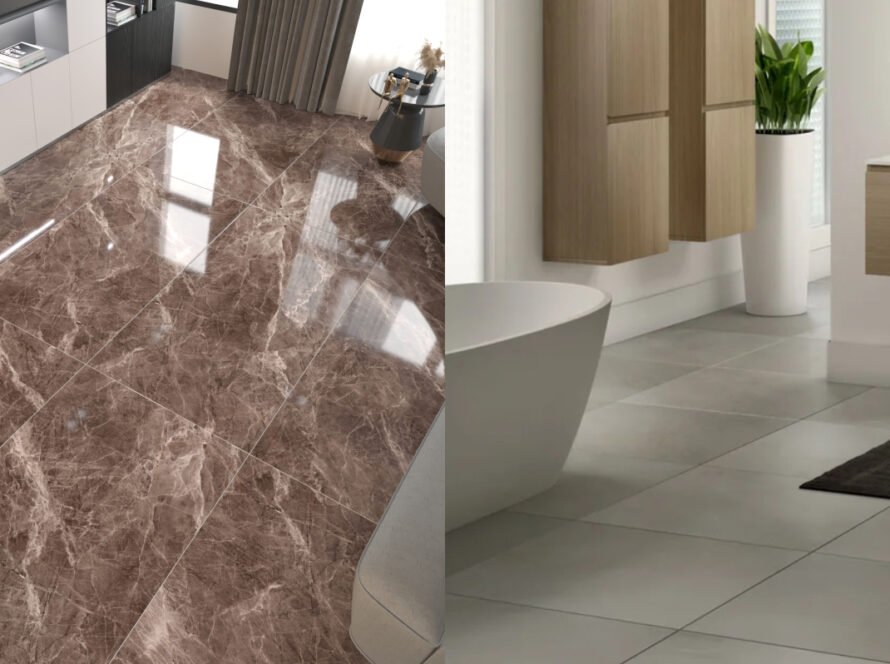Picture this: you’re stepping out of the shower, toes wiggling on cool tiles. Suddenly, your foot loses traction, and you’re staring down at a potential mishap. Slips and falls in bathrooms and kitchens, fueled by wet surfaces and smooth tiles, are alarmingly common. In the United States alone, they account for over 230,000 injuries and 800 deaths annually, according to the National Floor Safety Institute.
Here’s where the hero of this story enters: textured tiles. By incorporating these often-overlooked design elements, you can transform hazardous zones into havens of safety without sacrificing aesthetics. But choosing the right texture requires delving beyond mere visual appeal. Let’s embark on a deep dive into the world of slip-resistant tiles, uncovering technical terms, comparing materials, and dissecting the information most blogs leave out.
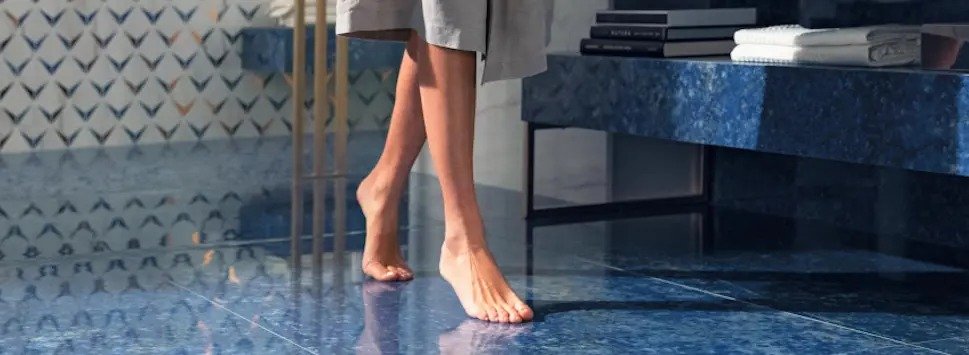
The Science of Slip Resistance: Demystifying R10, R11, and R12
Ever seen those cryptic “R” ratings on tiles? They’re not some secret code for robot uprisings, but rather the industry standard for slip resistance, established by the European standard EN 14231. Here’s the breakdown:
R9: Suitable for dry areas with minimal slip risk.
R10: Recommended for most indoor areas, including kitchens and bathrooms with occasional wetness.
R11: Ideal for high-traffic, frequently wet areas like pool surrounds and commercial kitchens.
R12: The ultimate grip champion, best suited for barefoot zones like showers and industrial settings.
Understanding these ratings is crucial. While an R9 tile might look tempting for its price tag, it won’t provide the necessary safety in a steamy bathroom. So, prioritize safety based on the intended use, and remember, an extra “R” can prevent a world of hurt (and medical bills!).
Texture Talk: Unveiling the Grip behind the Pattern
Now, let’s explore the textural landscape. Not all textures are created equal:
Linear Grooves: Think subway tiles with their signature ridges. These offer good directional grip, making them suitable for walking paths.
Pebbled or Mottled Surfaces: These provide multi-directional traction, ideal for high-traffic areas like shower floors.
Quarry Tiles: Their naturally uneven texture delivers excellent slip resistance, but their rustic look might not fit every design scheme.
Textured Porcelain/Ceramic Tiles: These combine the beauty of smooth finishes with subtle, raised patterns, offering a stylish compromise.
Remember, the deeper and denser the texture, the greater the slip resistance. But don’t go overboard; excessively rough surfaces can be uncomfortable underfoot and difficult to clean.
Material Matters: Unveiling the Slip-Up of Smooth Surfaces
Not all materials are created equal in the slip-resistant arena:
Glazed Porcelain/Ceramic Tiles: While beautiful, their smooth surfaces can become treacherous when wet. Opt for unglazed or matte finishes for enhanced safety.
Natural Stone: Travertine, slate, and granite might look luxurious, but their honed or polished finishes can be slippery, especially when wet. Choose textured or tumbled varieties for safer footing.
Vinyl Tiles: Certain vinyl tiles come with built-in slip-resistant features, making them a good choice for areas like laundry rooms and mudrooms.
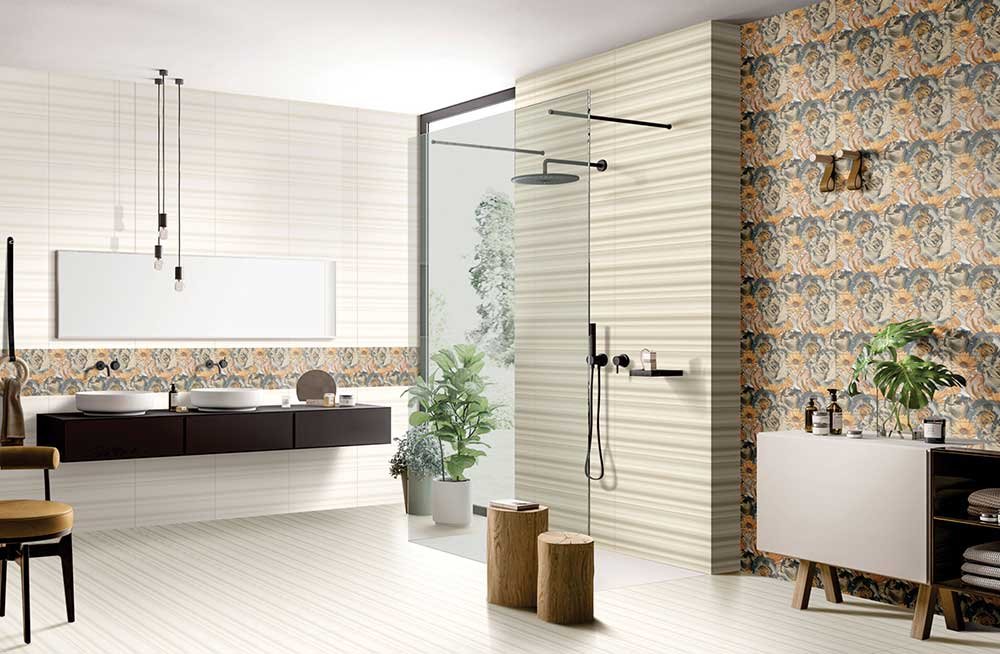
Beyond the R-Rating: Information Most Blogs Miss
Here are some often-ignored aspects to consider:
Foot Traffic: High-traffic areas require more aggressive textures than occasional-use zones.
Barefoot vs. Shod Use: Consider if the area will be used primarily barefoot (showers) or with shoes (kitchens).
Cleaning Ease: Deep textures can trap dirt and grime, so choose materials that are easy to maintain.
Aesthetics: Safety shouldn’t compromise style. Explore the vast array of textured tiles available to find options that complement your design vision.
By understanding the science of slip resistance, demystifying technical terms, and choosing the right texture and material, you can transform your home into a haven of safety without sacrificing aesthetics. Remember, an ounce of prevention (and the right tile choice) is worth a pound of cure (and a trip to the ER). So, step into the future of safer, stylish living, one textured tile at a time!
Sources:
National Floor Safety Institute: https://nfsi.org/
European standard EN 14231: https://www.bsigroup.com/en-GB/products-and-services/standards/
About Us
Empire Surfaces stands as a prominent figure among the premier porcelain tile manufacturers in India. Since our establishment, we have etched our presence as a trailblazer in the realm of Tiles. As India’s foremost producer and exporter of wood-look porcelain tiles, we take pride in our role as a global leader, committed to delivering unparalleled quality and an extensive array of products.
Our website hosts a myriad of other captivating designs, each a testament to our commitment to aesthetic excellence and diverse choices. Explore our collection today to receive a competitive quote tailored to your requirements.


